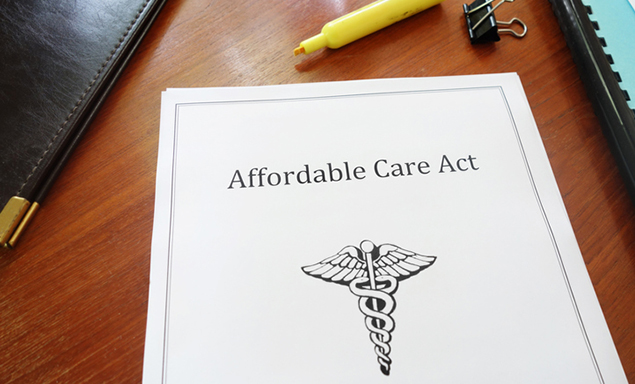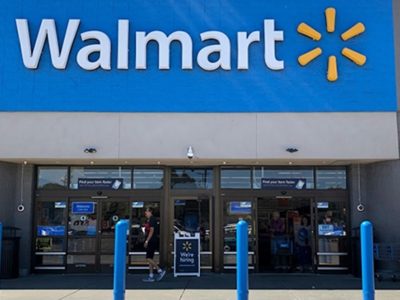
The House on Tuesday passed a bipartisan continuing resolution to extend federal government funding through December 11 and avoid a government shutdown at the end of the month.
Included in the CR is an extension of the deadline for hospitals to repay the Accelerated and Advance Payment Programs loans.
Hospitals get an extension from 120 days of the loan to 29 months from the date of the first payment. The CR stipulates that during the first 11 months in which any such payment offsets are made, 25% of the amount is due; during the succeeding 6 months, 50% of the amount is due; and hospitals are being given 29 months from the date of the first payment before requiring that the outstanding balance be paid in full.
HIMSS20 Digital
Learn on-demand, earn credit, find products and solutions. Get Started >>
WHY THIS MATTERS
While reportedly some providers have been hoping the relief fund loans would become grants, doing so would strain the Medicare Trust Fund.
On Tuesday, House Ways and Means Committee leaders released a letter expressing the concern over the Centers for Medicare and Medicaid Services’ decision to proceed with a $40 billion program extension without Congressional authorization or a transparent and public analysis of its potential impact on the Medicare program and its beneficiaries.
They said CMS had a lack of transparency in expanding the Accelerated and Advance Payment Programs beyond the scope authorized by Congress in the Coronavirus Aid, Relief, and Economic Security Act.
CMS expanded eligibility to more Medicare Part A providers and included select Part B providers without proper consideration for the solvency of the program, they said in the letter to Department of Health and Human Services Secretary Alex Azar and CMS Administrator Seema Verma.
“AAP is intended to assist certain providers in emergencies like the current COVID-19 pandemic, and the CARES Act expanded the number of eligible providers and increased the maximum payment amount,” said Chairman Richard E. Neal (D-MA), House Energy and Commerce Committee Chairman Frank Pallone, Jr. (D-NJ), and Senate Finance Committee Ranking Member Ron Wyden (D-OR).
The Democratic health leaders requested answers to a series of questions and a briefing to understand the impact of CMS’s unauthorized expansion of the AAP program by October 2.
THE LARGER TREND
In May, Chairmen Neal and Pallone raised concerns over CMS’s methodology for distributing COVID-19 loans from both the AAP Program and the Provider Relief Fund, and called on both HHS and CMS to provide Congress with more transparency.
Congress appropriated $100 billion in the CARES Act and $75 billion through the Paycheck Protection Program and Health Care Enhancement Act for healthcare providers. These payments do not need to be repaid.
An accelerated/advance payment is a payment intended to provide necessary funds when there is a disruption in claims submission and/or claims processing. These expedited payments can also be offered in circumstances such as national emergencies, or natural disasters to accelerate cash flow to healthcare providers and suppliers.
In April 26, CMS announced it was reevaluating the amounts that will be paid under its Accelerated Payment Program and suspending its Advance Payment Program to Part B suppliers.
ON THE RECORD
“In expanding the scope of eligible providers beyond what Congress authorized, we are concerned that CMS has jeopardized the integrity of the Hospital Insurance and Supplemental Medical Insurance Trust Funds in a manner that threatens the long-term financial viability of the program, would significantly raise Part B premiums, and could harm beneficiary access,” the Committee leaders said. “We request additional information and an immediate briefing to understand the full impact of CMS’s unauthorized decision to expand the AAP programs.”
Dr. Bruce Siegel, America’s Essential Hospitals, thanked House leaders for easing repayment of the Medicare accelerated and advance payment loans and for delaying Medicaid disproportionate share hospital (DSH) payment cuts. But he called on Congress and the administration to provide more support for hospitals as COVID-19 cases continue to strain hospital resources this fall and winter.
“Our hospitals continue to suffer high costs and revenue losses associated with COVID-19, and they welcome the relief this continuing resolution would provide,” he said. “Further, the additional delay in DSH cuts will help hospitals and Congress as they work toward a sustainable solution to the threat these cuts pose to health care access for low-income patients.”
Twitter: @SusanJMorse
Email the writer: susan.morse@himssmedia.com















